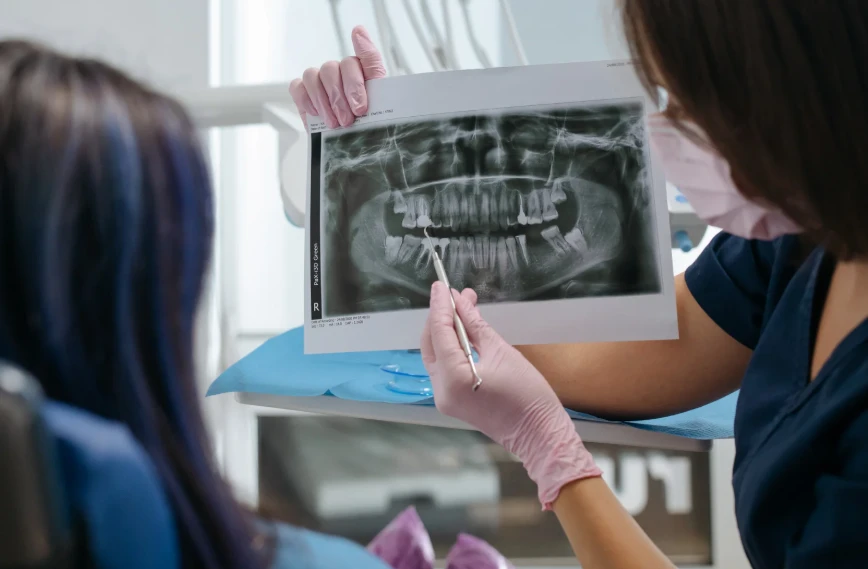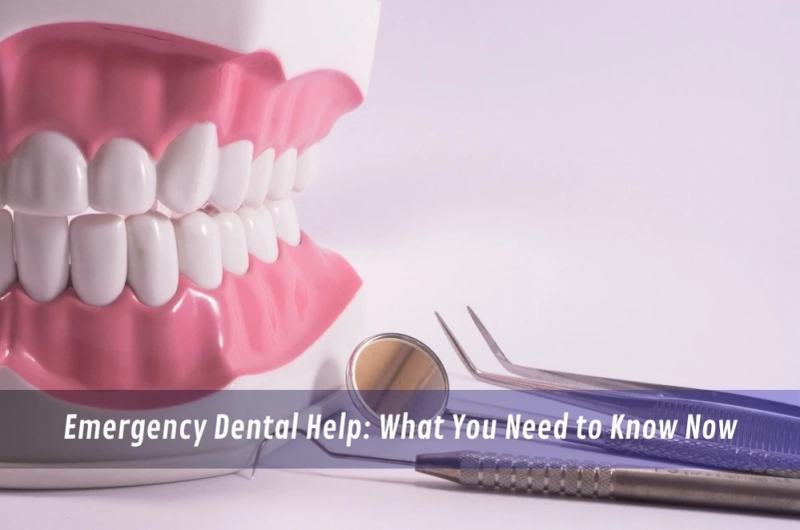Dental emergencies don’t give you a heads-up. One minute, you’re biting into a sandwich; the next, you feel a sharp crack — or worse, a tooth comes loose. It happened to me during a quiet Sunday lunch. No dentist open, no idea what to do next. When pain kicks in fast, the only thing on your mind is finding urgent dental care that won’t make you wait.
In those moments, it’s easy to feel overwhelmed. But the quicker you act, the better the chances of avoiding lasting damage. Whether it’s a knocked-out tooth, swelling, or unexpected bleeding, knowing what qualifies as a true emergency — and how to handle it before you get to a clinic — makes a real difference.
This article breaks down the signs to watch for, what you can do at home, and what really happens when you show up at an emergency dental appointment.
What qualifies as a dental emergency?
Let’s be honest — it’s not always obvious what counts as a true emergency and what can wait until your next check-up. But some signs are harder to ignore than others.
Emergencies that typically require same-day attention:
- A knocked-out adult tooth
- Bleeding that won’t stop
- Severe pain or swelling in the jaw
- Infection or abscess with fever
- Visible facial trauma involving teeth
That said, I’ve known people who ignored cracked fillings or persistent sensitivity for weeks — thinking it wasn’t urgent — only to wind up needing a root canal later. When in doubt, pick up the phone and ask.
First steps when you're in pain
Pain has a funny way of making you freeze — or overreact. But before spiralling, it helps to take a breath and focus on what you can control.
I’ve dealt with a sharp molar flare-up during a family camping trip. Middle of nowhere. No dentist. Just cold water from the sky and a half-used painkiller strip. The relief is minimal. But rinsing with saltwater and gently pressing a cold compress helped get me through the night.
A few strategies to stay steady:
- Rinse your mouth gently with warm salt water
- Use a cold pack on your cheek for swelling
- Stick to soft foods until you get seen
- Keep your head elevated if lying down
You won’t fix the issue at home, but these steps can hold the line until help is available.
Tips for handling knocked-out or broken teeth
I once saw a young cousin lose his front tooth chasing a soccer ball he never caught. The shock on his face, the silence on the field — then the scramble for help. His dad, thankfully, remembered enough from a first aid course to handle it right.
In the moment, here’s what matters:
- Handle the tooth by the crown (not the root)
- Rinse briefly in milk or saline, but don’t scrub
- Try to gently place it back in the socket
- If not, store it in milk and get to a dentist fast
Timing is everything — ideally within the hour. Even if you can’t save the tooth, preserving tissue and minimising damage can help future dental work go more smoothly.
Avoiding common mistakes during emergencies
Stress makes smart people do weird things. I once heard someone try to fix a loose crown with super glue. It held — until it didn’t. That quick fix ended with a cracked root.
A few things better left undone:
- Don’t use glue, tape, or DIY adhesives
- Don’t apply heat to swollen areas
- Avoid poking around the injury with objects
- Don’t chew on the injured side, even “soft” foods
It’s not about doing everything perfectly — it’s about avoiding those classic slip-ups that make things worse. Err on the side of caution every time.
Support from official dental emergency resources
Understanding what to do before you reach a clinic is critical — especially in remote or rural areas where emergency care may take longer to access. NSW Health provides clear, evidence-based dental emergency advice that explains the most appropriate responses to different scenarios.
This type of information is particularly helpful when deciding whether to visit a dentist or go straight to a hospital, especially when swelling, infection, or airway concerns are involved. It’s not just about acting fast — it’s about acting smart.
How people actually manage trauma under pressure
In a moment of pain, logic doesn’t always win. That’s why preparation matters. Whether it’s having a dental kit in your glove box or knowing your dentist’s after-hours number — little things count.
A mate of mine once slipped while cleaning the gutters — tooth through the lip, broken incisor, total mess. It was confronting but also eye-opening. Knowing about soft-tissue control and managing dental trauma made it easier to help him calmly rather than freeze up.
Practical ways to be better prepared:
- Store your dentist’s number in your phone
- Keep gauze, a cold pack, and a small container for lost teeth in a basic first-aid kit
- Know which local clinics accept emergency walk-ins
None of it needs to be complicated. Just a few tools and a clear head can make a real difference when every minute matters.
What people often experience during urgent appointments
A lot of people expect a frantic scene when they turn up at an emergency dentist. But honestly, it’s usually the opposite. It’s calm, quiet, and clinical, with a heavy focus on stabilising you quickly and efficiently.
The first time I went in with sudden swelling, I was surprised by how streamlined the process was.
What usually happens:
- Quick questions to understand symptoms
- X-rays or scans, if needed
- Immediate treatment or temporary solutions
- Clear explanation of what comes next
Understanding what to expect in dental emergencies can ease a lot of the anxiety before you even walk through the door. Most patients report feeling better just knowing someone’s ready to help.

Final thoughts
Emergencies aren’t scheduled — they just happen. And when it’s your tooth, your pain, or your kid standing there with a chipped smile, the last thing you want is to feel powerless.
Knowledge won’t stop the pain. But it can stop the panic.
In those early moments, your response matters. Protect the area. Stay calm. Contact a clinic. And don’t wait longer than you need to.
Acting early might be the difference between a quick recovery and a drawn-out repair. And that’s something you’ll definitely be thankful for later.



